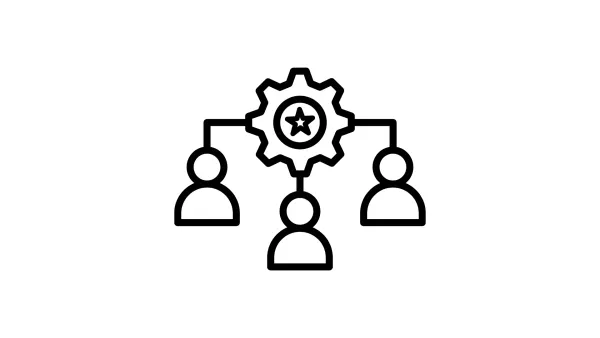How AI is Transforming Web Server Management in 2025
AI is reshaping web server management with automation, optimization, and enhanced security. Learn how AI-driven tools handle traffic, mitigate threats, and reduce downtime to redefine the future of hosting.

Table of Contents
- Introduction
- What is AI in Web Server Management?
- Current Challenges in Web Server Management
- AI-Powered Server Optimization
- AI and Web Server Security
- AI-Driven Automation in Web Server Maintenance
- Improved User Experience Through AI
- AI in Hybrid and Multi-Cloud Environments
- Real-World Use Cases of AI in Web Server Management
- Limitations and Challenges of AI in Web Server Management
- The Future of AI in Web Server Management
- Conclusion
- FAQs
Managing web servers is no small task, especially as the internet grows more complex. Traffic spikes, security threats, and maintenance challenges keep IT teams on their toes. Enter Artificial Intelligence (AI)—a game-changing technology that’s revolutionizing how web servers are managed. Let’s dive into how AI is shaping the future of server management.
Introduction
The Growing Complexity of Web Server Management
With websites and applications handling millions of users daily, traditional server management methods often fall short. From optimizing performance to preventing downtime, the stakes are higher than ever.
Why AI is a Game-Changer for Web Servers
AI brings automation, intelligence, and speed to server management, enabling faster decision-making, better resource allocation, and enhanced security.
What is AI in Web Server Management?
Definition and Applications of AI in Server Management
AI in server management uses machine learning, neural networks, and predictive analytics to automate tasks, optimize performance, and enhance security.
Key Technologies Driving AI Integration
- Machine Learning: Analyzes server data to predict and prevent failures.
- Neural Networks: Identifies patterns in traffic and security logs.
- Natural Language Processing: Improves user interactions with server management tools.
Current Challenges in Web Server Management
Manual Monitoring and Maintenance
Manually tracking server performance is time-consuming and prone to errors, especially during high-traffic periods.
Handling Traffic Spikes and Resource Allocation
Scaling resources quickly during unexpected traffic surges remains a significant challenge for traditional methods.
Security Threats and Vulnerability Management
With increasing cyberattacks, detecting and responding to threats manually is no longer feasible.
AI-Powered Server Optimization
Automated Resource Allocation for Peak Performance
AI adjusts server resources in real-time based on traffic and application demands, ensuring peak performance.
Predictive Analytics for Server Health Monitoring
By analyzing server logs, AI predicts potential hardware failures or performance bottlenecks before they occur.
Reducing Latency with Intelligent Load Balancing
AI-driven load balancers distribute traffic efficiently across servers, minimizing latency and avoiding downtime.
AI and Web Server Security
Detecting and Preventing DDoS Attacks with AI
AI can identify unusual traffic patterns indicative of a DDoS attack and mitigate the threat before it affects users.
Real-Time Threat Detection and Response
AI-powered tools monitor server activity 24/7, flagging and neutralizing threats in seconds.
Enhancing Data Encryption and User Authentication
AI ensures robust encryption protocols and adaptive authentication methods, enhancing overall security.
AI-Driven Automation in Web Server Maintenance
Automated Patching and Updates
AI automates software updates and patches, reducing vulnerabilities and ensuring compliance.
Self-Healing Servers: Identifying and Fixing Issues Automatically
AI-enabled servers diagnose and resolve minor issues without human intervention, minimizing downtime.
Streamlining Backup and Recovery Processes
AI optimizes backup schedules and ensures quick recovery during unexpected failures.
Improved User Experience Through AI
Faster Content Delivery with AI-Optimized Caching
AI predicts frequently accessed content and caches it, delivering faster page loads to users.
Personalization of Server Responses Based on User Behavior
AI analyzes user behavior to tailor server responses, improving the overall experience.
Dynamic Adaptation to Changing Traffic Patterns
AI dynamically adjusts server settings to handle fluctuating traffic efficiently.
AI in Hybrid and Multi-Cloud Environments
Managing Workloads Across Multiple Servers and Clouds
AI seamlessly balances workloads across hybrid and multi-cloud setups, optimizing performance and costs.
Optimizing Cost and Performance in Multi-Cloud Setups
AI tracks resource usage and suggests cost-effective solutions while maintaining performance.
Ensuring High Availability with AI Tools
AI-driven failover mechanisms ensure uninterrupted access by automatically switching to backup servers during failures.
Real-World Use Cases of AI in Web Server Management
Examples of Companies Using AI for Server Optimization
- Netflix: Uses AI to optimize video streaming by balancing server loads.
- Google: Employs AI for predictive server maintenance.
Success Stories in Security and Scalability
AI has helped enterprises detect security breaches early and scale operations seamlessly during peak usage periods.
Limitations and Challenges of AI in Web Server Management
High Initial Costs and Implementation Complexity
Setting up AI systems can be expensive and technically challenging for small businesses.
Dependence on Accurate Data for AI Training
AI systems require high-quality data for effective learning, making initial setup crucial.
Balancing Automation with Human Oversight
Over-reliance on AI can lead to issues if critical decisions require human intuition.
The Future of AI in Web Server Management
Emerging Trends: AI-Driven Edge Computing and Serverless Architectures
AI will enhance edge computing by optimizing data processing closer to users and supporting dynamic serverless architectures.
AI’s Role in Green Hosting and Sustainability
AI will play a key role in reducing server energy consumption and enabling eco-friendly hosting.
Innovations to Expect in the Next Decade
Expect smarter load balancing, near-perfect uptime, and AI-integrated security measures as standard.
Conclusion
AI is revolutionizing web server management by automating tasks, optimizing performance, and enhancing security. While there are challenges, its benefits far outweigh the drawbacks. As AI continues to evolve, embracing this technology is essential for businesses aiming to stay ahead in the digital age.
FAQs
What is AI in web server management?
AI uses technologies like machine learning and predictive analytics to automate server tasks, optimize performance, and enhance security.
How does AI improve server performance?
AI dynamically allocates resources, balances server loads, and predicts potential issues to ensure peak performance at all times.
Can AI help with server security?
Yes, AI detects and prevents threats like DDoS attacks, identifies unusual activity, and automates security patches to keep servers secure.
What are self-healing servers, and how does AI enable them?
Self-healing servers automatically detect and resolve issues without human intervention, thanks to AI-driven diagnostics and solutions.
How does AI optimize server response times?
AI uses intelligent caching, load balancing, and predictive analytics to minimize latency and deliver faster responses to users.



